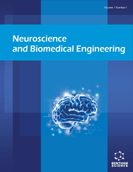Abstract
Background: Virtual Learning Environments (VLEs) such as Coursera, Moodle and edX have become increasingly popular. However, achieving self-regulated learning (SRL) remains an ongoing challenge in current VLEs. Diaries are instruments through which students can reflect on their learning experiences and the use of a diary is important for gathering various kinds of information. Also, diaries help to obtain valid data on daily learning experiences and progress. This paper explores the use of a diary to enhance student self-regulation while learning in a VLE. Methods: The experimental period lasted 4 weeks. Participants studied 10 lessons in a VLE with one e-quiz after each lesson. They also interacted with teachers and other students on the Facebook pages. A YouTube channel was used to help students upload their project progress reports (e.g., videos). Only the experimental group participants were using Google forms to write diaries. Every student in both groups answered the questionnaire (pre–test) to identify the (SRL) level of each student and every student answered a post–test questionnaire so we could measure and compare results and relative progress. Results: In almost all cases, participants from the experimental and the control groups improved their Self-Regulated Learning abilities in the VLE, however, there was more improvement in the experimental group than in the control group in almost all aspects of SRL. The study indicates that the use of a diary increases the number of correct answers in SRL questionnaires and develops self-regulation behaviour among students above and beyond the level attained when studying in a VLE without writing diary. After analysing 200 diary files from the experimental group students we found that their performances had improved significantly above and beyond the control group results which confirms that writing a diary while studying in a VLE has positive effects on student SRL. Conclusion: Writing diaries had a significantly positive effect on improving the students’ self-regulation compared with studying in a VLE without writing a diary. There are multiple benefits. Some of these are the sense of personal ownership of design objectives and thus greater motivation to be engaged, personal adjustments made to the study environment, personal planning, the establishment of personal priorities and self-reliance. Diary use also develops the students’ capacity for self-accounting. We expect that the use of diaries in virtual learning environments will open up an entirely new range of research issues for educational purposes and for human development.
Keywords: Diary, index terms, self-regulation, virtual learning environments.
Graphical Abstract
 8
8

